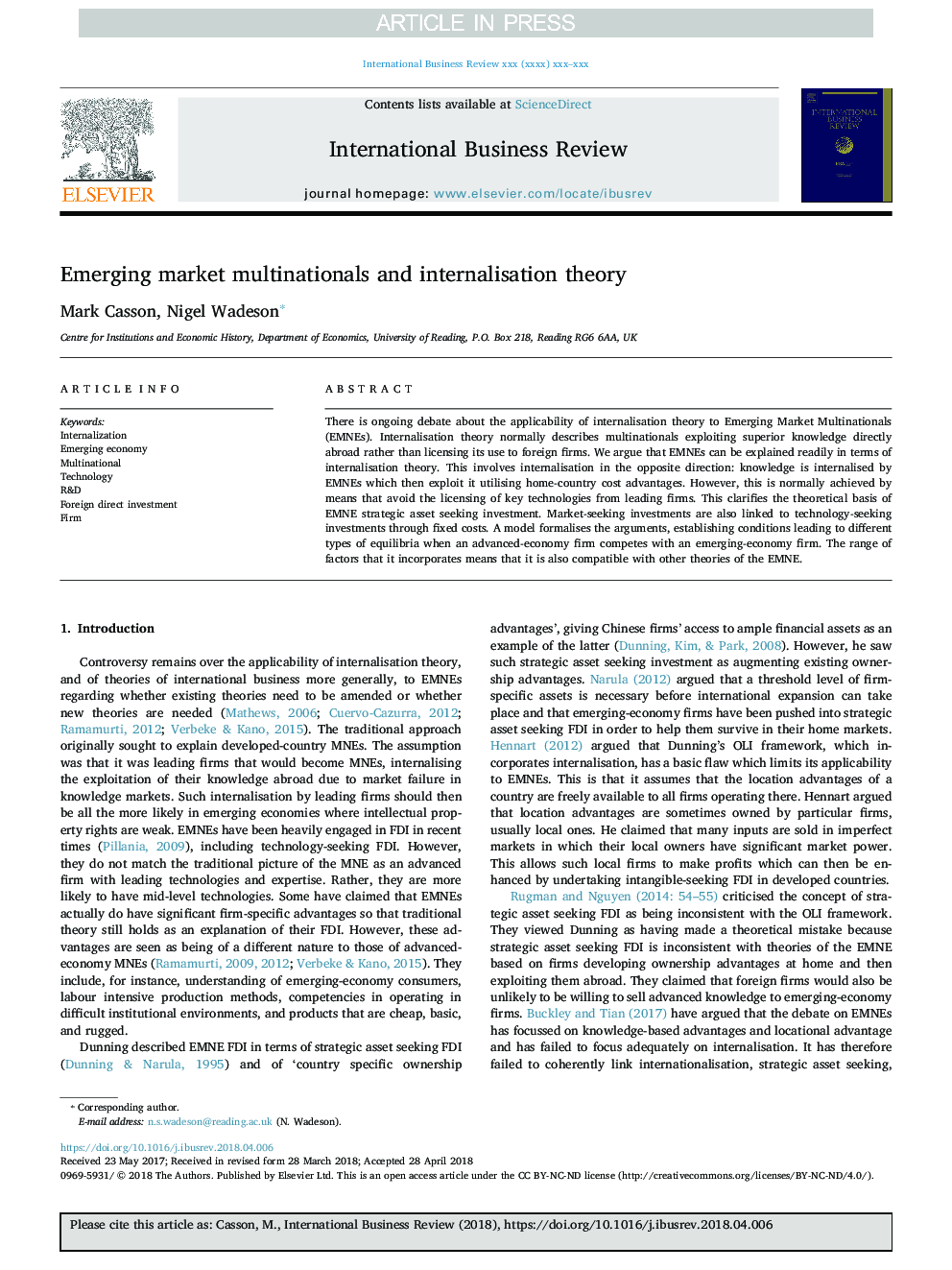| Article ID | Journal | Published Year | Pages | File Type |
|---|---|---|---|---|
| 8965257 | International Business Review | 2018 | 11 Pages |
Abstract
There is ongoing debate about the applicability of internalisation theory to Emerging Market Multinationals (EMNEs). Internalisation theory normally describes multinationals exploiting superior knowledge directly abroad rather than licensing its use to foreign firms. We argue that EMNEs can be explained readily in terms of internalisation theory. This involves internalisation in the opposite direction: knowledge is internalised by EMNEs which then exploit it utilising home-country cost advantages. However, this is normally achieved by means that avoid the licensing of key technologies from leading firms. This clarifies the theoretical basis of EMNE strategic asset seeking investment. Market-seeking investments are also linked to technology-seeking investments through fixed costs. A model formalises the arguments, establishing conditions leading to different types of equilibria when an advanced-economy firm competes with an emerging-economy firm. The range of factors that it incorporates means that it is also compatible with other theories of the EMNE.
Related Topics
Social Sciences and Humanities
Business, Management and Accounting
Business and International Management
Authors
Mark Casson, Nigel Wadeson,
